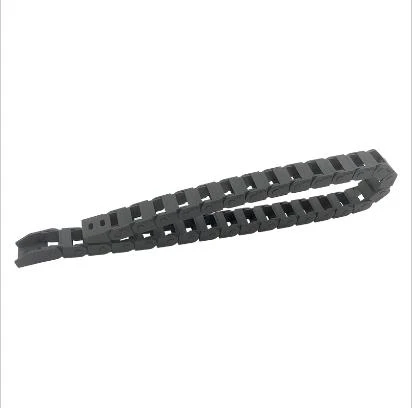Choosing the Right Electrical Cable Carrier for Your Project Needs and Efficiency
Understanding Electrical Cable Carriers An Essential Component in Modern Industries
Electrical cable carriers, also known as cable drag chains or cable management systems, are crucial components in a variety of industrial settings. These carriers play a significant role in managing and protecting electrical cables and hoses, ensuring smooth operation, safety, and longevity of electrical systems. In this article, we will explore what electrical cable carriers are, their applications, benefits, and factors to consider when choosing the right cable carrier for specific needs.
What Are Electrical Cable Carriers?
Electrical cable carriers are mechanical devices designed to hold and guide cables and hoses. They consist of a series of links that can bend and flex while simultaneously keeping the cables organized and secure. The primary function of these carriers is to prevent cables from tangling or being damaged as equipment moves, particularly in dynamic environments where motion is prevalent. Cable carriers come in various shapes, sizes, and materials, allowing for versatility across different applications.
Applications
Electrical cable carriers are widely used in many industries, including automation, manufacturing, robotics, and aerospace. They are particularly common in environments where machinery moves in multiple axes, such as CNC machines, assembly lines, and robotic arms. By using cable carriers, operators can ensure that their equipment operates efficiently without interruption due to cable issues.
In addition to industrial settings, cable carriers are also relevant in infrastructure projects, such as elevators and cranes, where they help manage power and control cables. Furthermore, they are essential in telecommunications and data centers, where they protect and organize a multitude of data cables and connections.
Benefits of Using Cable Carriers
1. Protection One of the primary advantages of using electrical cable carriers is the protection they offer. They shield cables from abrasion, crushing, and exposure to harsh environmental conditions, thereby prolonging the life of the cables.
2. Organization By keeping cables neatly arranged, cable carriers greatly reduce the risk of cable entanglement. This organization simplifies maintenance and troubleshooting while enhancing the overall aesthetics of the workspace.
3. Flexibility Many modern cable carriers are designed to accommodate various cable types and sizes. They can be configured for different applications, with the capacity to hold multiple cables in a single carrier, which is particularly beneficial in applications with high cable density.
electrical cable carrier

4. Smooth Movement Cable carriers allow for unhindered movement of cables, resulting in minimal friction and wear. This smooth operation contributes to greater efficiency and reliability in automated systems.
5. Safety By preventing cables from getting caught in machinery or causing tripping hazards, cable carriers enhance workplace safety. This is particularly important in high-traffic areas where the risk of accidents is significant.
Choosing the Right Cable Carrier
When selecting an electrical cable carrier, there are several factors to consider
- Application Requirements The specific needs of the application should dictate the type of cable carrier chosen. Considerations include the type of movement (linear, rotary, or three-dimensional), space constraints, and environmental factors like temperature, dust, and moisture.
- Cable Types and Sizes Ensure the carrier can accommodate the necessary cable types and lengths. Some carriers are designed for particular cable diameters, while others offer adjustable configurations.
- Material Cable carriers come in various materials, including plastic, steel, and aluminum. The choice of material should align with the application’s environment, load requirements, and potential exposure to chemicals or extreme temperatures.
- Weight Capacity Each carrier has a specific weight limit. It is crucial to choose a carrier that can support the combined weight of all the cables and hoses it will hold.
- Installation and Maintenance Evaluate how easy it is to install and maintain the cable carrier. Systems that allow quick access to cables for replacement or repair can save time and reduce downtime.
Conclusion
In conclusion, electrical cable carriers are indispensable in modern industry, providing protection, organization, and safety for electrical systems. By safeguarding cables from damage and ensuring efficient movement, these devices contribute significantly to the reliability and longevity of industrial equipment. When selecting a cable carrier, it is vital to consider application requirements, cable specifications, and environmental factors to ensure optimal performance. With the right choice, businesses can enhance productivity, safety, and efficiency in their operations.








